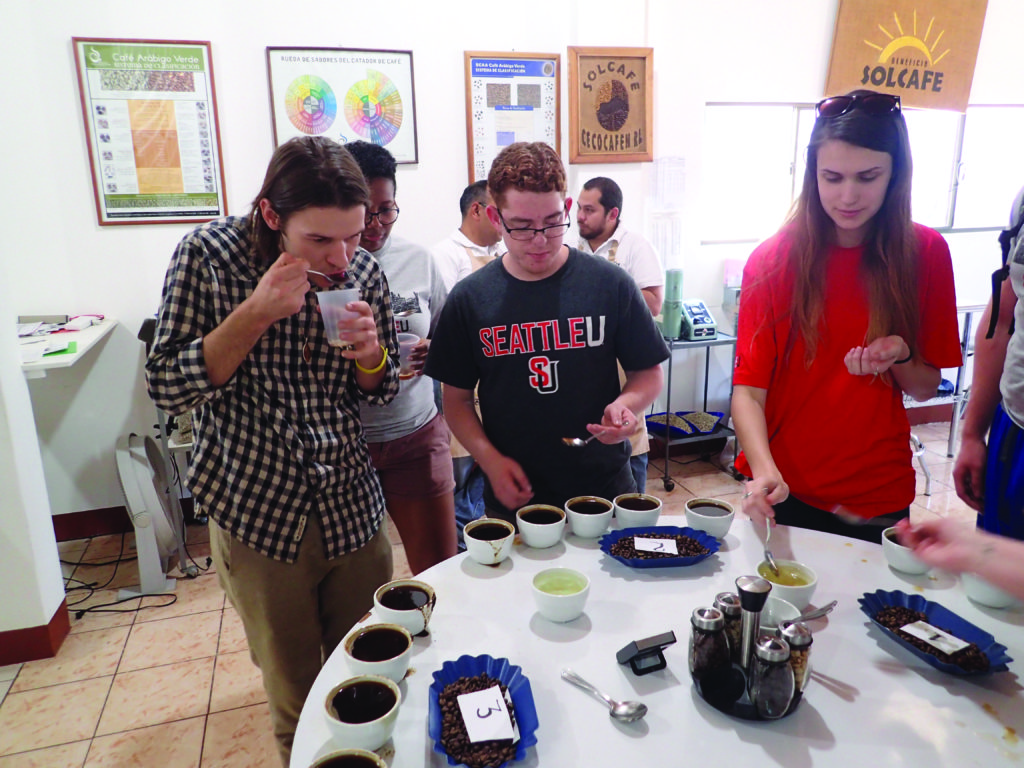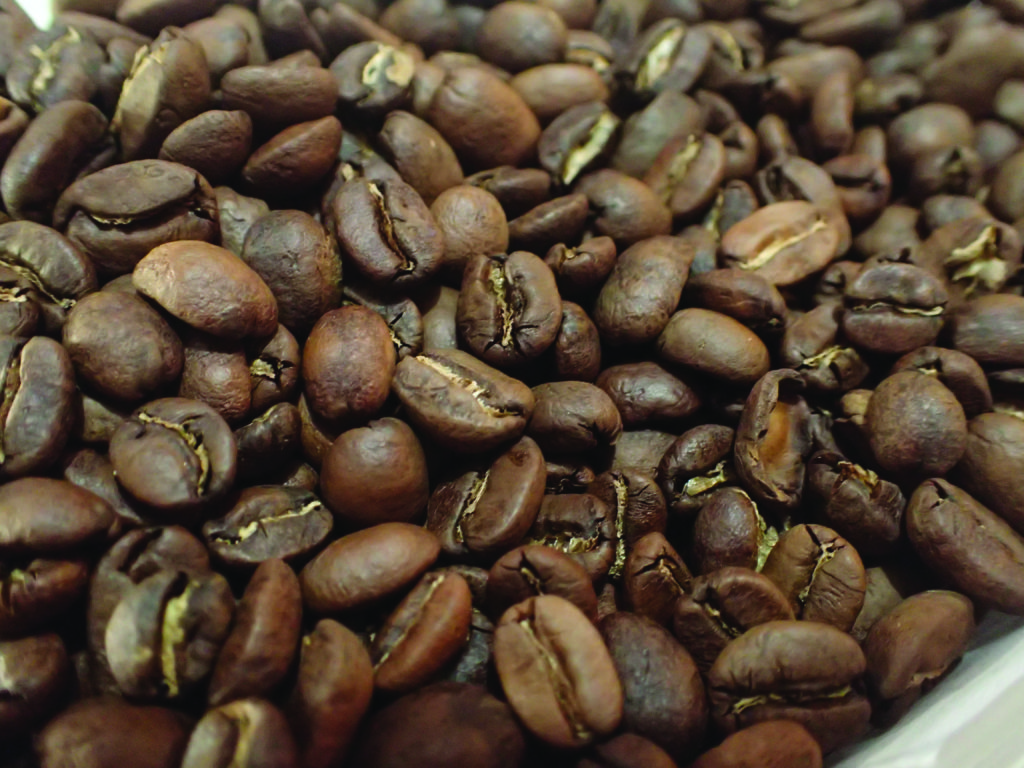As students get back into the swing of a new quarter, they often have a hot cup of coffee in hand. Junior international business and economics major Braden Wild is fueling the caffeine craze with his coffee company that seeks to help a group of farmers living in Matagalpa, Nicaragua.
“The average bag of coffee serves thirty servings, so when you buy a bag of our coffee, every cup of coffee that you drink sends a kid to school for a day. So that’s all it takes,” said Wild. “We want to express the fact that we have a really good quality coffee, it’s a student-run business, and that when you buy our coffee, you can serve a really good purpose drinking it.”
The company, called Café Ambiental, buys the coffee produced by these farmers, and donates all of the profit to provide scholarships for their children.
Wild explained that the company buys coffee from these farmers at 25 percent more than what the market price is.
“We pay them upfront. The farmers right now have to buy loans from other lenders in the country, sometimes with up to 24 percent interest rates, which is ridiculous, just to get paid in advance and upfront to cover the cost of the harvest,” Wild said. “So, when we buy all of our coffee, we pay directly and up-front, and all of the profits generated from selling the coffee are sent back to the co-op, whether that’s in another batch of coffee or whether that’s educational scholarships.”
While Café Ambiental has been selling the coffee for almost two years, the Seattle U chemistry department has been involved with these farmers for more than a decade.
“It’s an ongoing project that’s been going with Seattle University and the same group of farmers since the coffee crisis in 2001 when the farmers were literally starving and leaving their land and they had to be helped by Catholic Relief Services,” said faculty advisor to Café Ambiental and chemistry professor emeritus Sue Jackels.
They joined the coffee industry through the Catholic Relief Services shortly after the crisis to help this particular group of farmers. These farmers expressed a desire to grow higher quality coffee so that they could move from the commodity market to the specialty market, in turn bringing more money back to their families.
“That’s when we at Seattle University became interested in becoming a Fair Trade University and buying their coffee as fair trade organic coffee and selling it here on campus,” Jackels explained.
“Fair trade” is a term that’s used to designate some products as being produced sustainably and without unsafe working conditions or slave labor. To be a Fair Trade University means that the university declares a commitment to these practices. Seattle U made this declaration in 2014.
Wild, as well as other Seattle U students, traveled to Nicaragua over spring break to meet with the farmers who produce the Café Ambiental beans and discuss ways in which the program could be more effective.
As a result of the trip, the company learned that some money needed to be allocated differently in order to be of better use to farmers. In addition, they realized that the farmers weren’t actually receiving as much money back as they should be.
“During this trip, we learned that although we pay the farmers $2.42 per pound, which is about 40 cents higher than the regular price that they get, but the farmers actually get only 67 cents,” said Seattle U faculty advisor and economics professor Quan Le. “So a lot of money goes into the middle man. So, we’re gonna see if we can find a direct buyer to buy coffee from them and pay the price that we pay.”
Further, Seattle U instructor and faculty advisor Nathan Colaner explained that some of the middlemen were taking advantage of the farmers’ lack of accounting experience. He said that the company accomplished its goal over the break to fact-find, but it will need to make adjustments to address their concerns.
“Like with any project of this type, our attitude needs to be that we’re going in to empower, rather than we’re there to fix anything,” Colaner said. “We just want to make sure that the farmers in the co-op, that the farmers are involved and have the proper tools to be able to negotiate for themselves and advocate for what they deserve.”
While the coffee company adjusts to the changing needs of the farmers, they’re also seeking to expand in order to bring more money back to the farmers. For now, the coffee is available at the Seattle U bookstore, but Café Ambiental hopes to make it more widely available soon.
Josh may be reached at
jmerchant@su-spectator.com










